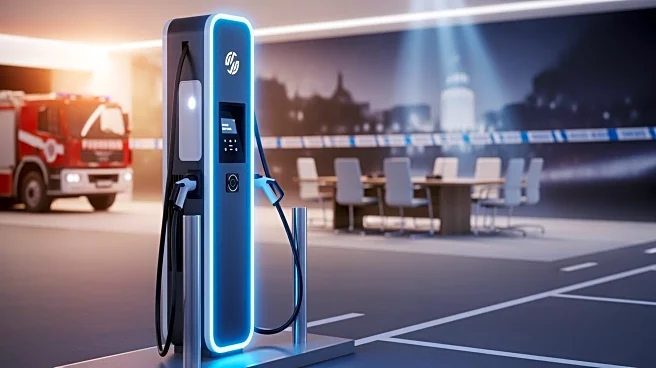What's Happening?
Porsche has inaugurated its ninth charging lounge in Evendorf, Lower Saxony, near Lüneburg Heath. This facility, located near the Evendorf autobahn exit on the A7, offers six DC fast-charging points with a capacity of up to 400kW. The lounge is designed
to provide full power even when all charging points are in use simultaneously. It features amenities such as covered seating areas, snacks, drinks, and complimentary Wi-Fi. The Porsche Charging Service, which includes this lounge, comprises over 900,000 charging points across 27 European countries. A Porsche ID is required for access, and the My Porsche app facilitates entry and payment.
Why It's Important?
The opening of this charging lounge is significant as it represents Porsche's commitment to expanding electric vehicle (EV) infrastructure, which is crucial for the adoption of EVs. By providing high-capacity charging stations, Porsche is addressing one of the main barriers to EV adoption: range anxiety. This development is likely to benefit Porsche owners and could encourage more consumers to consider EVs, thus supporting the broader transition to sustainable transportation. The initiative also positions Porsche as a leader in the EV market, potentially influencing other automakers to enhance their charging networks.
What's Next?
Porsche is expected to continue expanding its charging network, which could lead to increased EV sales and further advancements in charging technology. The company may also explore partnerships with other automakers or energy providers to enhance the accessibility and efficiency of its charging services. Stakeholders, including government bodies and environmental groups, may view this expansion positively as it aligns with global sustainability goals.
Beyond the Headlines
This development could have long-term implications for the automotive industry, particularly in terms of competition among luxury car manufacturers. As Porsche enhances its EV infrastructure, other brands may feel pressured to improve their offerings, potentially leading to innovations in charging technology and battery efficiency. Additionally, the expansion of charging networks could influence urban planning and energy policies, as cities adapt to accommodate the growing number of EVs.
















